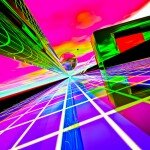Why We’re Not Sleeping – And How You Can Get A Better Night’s Sleep

July 8, 2012 Blog Michael Metcalf
“Sleep, those little slices of death — how I loathe them.” ― Edgar Allan Poe
For an activity that we spend almost a third of our lives doing, sleeping has been largely ignored as a topic of interest throughout history. We need it for restoring energy levels, repairing tissue, recovering from illnesses, and more – but we’ve never been quite sure exactly what it’s for. Mentioned scarcely in art and literature, dismissed as a necessary evil by medieval farmhands and modern office drones alike, sleep has long been misunderstood and under-researched.
However, in the last decade or so, it has risen to the forefront of medical science as a critical component of healthy living, and the world’s best minds are finally beginning to tackle its mysteries. We now know that it’s critical for repairing and restoring the brain, and that the sleep we have after learning something is necessary for effective memory consolidation.
Charles Czeisler, a professor of sleep medicine at Harvard University, gave a talk at TEDxCambridge recently, about why we’re not sleeping enough, and what we can do about it. One of the key issues is the light which we’re exposed to – the age of electricity, with its endlessly flashing gadgets and bright screens, has contributed massively to this. Blue light, emitted by computers and electronics, is the harshest disruptor of our circadian rhythms (the biological processes that regulate our sleep cycles), due to its suppression of melatonin release (a hormone produced by the pineal gland that affects the onset and quality of sleep). These processes of circadian photoreception are so sensitive to light that even blind people can have them altered by different lighting conditions.
If you’ve ever had a bad night’s sleep, felt like a zombie the next day, but had a few strange moments where you feel fresh and alert for no real reason – you’re probably experiencing an ‘upswing’ part of the circadian cycle. The release of melatonin instructs our body to avoid these upswings so that we can sleep – Czeisler states that disrupting this release will not only stop you getting to sleep on one night, but will also shift melatonin onset the next evening. This inevitably leads us into longer-term habits forming when we’re not careful about our night-time behaviour.
Another sleep disruptor is one of the world’s most popular drugs. Caffeine, found in all kinds of drinks including tea, coffee, and cola, is a mild but addictive stimulant, and stays effective in the body for an alarmingly long amount of time – its half-life is between 6 and 9 hours. It interferes with the brain sensors that detect our body’s need for sleep, as most of us will have experienced at some point. It makes you wonder why a post-dinner espresso is so popular in restaurants around the world.

As well as that, the mere existence in a modern industrial society is enough to decrease sleep quality for many – the very fact that our work/study schedules necessitate an alarm clock to wake up creates an unnatural existence. It’s something we rarely think about, but the fact that you need an alarm clock means you aren’t getting enough sleep.
So what can we do to improve our quality of sleep? Czeisler’s TED talk offers a few solutions, and through a decade or so of casual research (due to developing something of a sleep addiction in my teens) I’ve found a few ones myself.
Using the science of self-tracking, which I reported on in June, there’s plenty of technological marvels which can help us track our sleep quality, and give us a better understanding of what we can do to improve it. Firstly, a simple but very popular app for iOS users is Sleep Cycle - you turn the app on when you go to sleep, plug your phone into charge ,and leave it on the edge of your bed. The extremely sensitive accelerometer of your iPhone records your movements through the night, interpreting them into guesses of what stage of sleep you’re in. Not only does it record your sleep depth through the night, which is outputted to graphs that you can save and share – it also has an alarm function which wakes you up within 30 minutes of your target wake-up time, in your optimal phase of wakefulness. In theory, this means you’ll be less groggy when you wake. In practice, I’ve found it a little inaccurate at times (the developers make no claims to the contrary), but well worth using if you want an easily-understandable overview of how you’re sleeping. Here’s a graph from one of my recent nights. This was a Friday night after a long work week – the immediate lurch into deep sleep shows how exhausted I was. It did a great job of waking me at the right time though, as you can see:

For a similar, but more expensive and thorough sleep-tracking experience, have a look at Lark Pro - a combined app and wrist sensor that gives you even more detail and a personalised sleep coaching program based on your data.
Once you’re awake, even if you’ve had a great night’s sleep, it’s easy to feel groggy and slow on some mornings. Light therapy is a surprising way to wake yourself up without the need for stimulants or sugar rushes. Author, business writer and ‘lifestyle designer’ Tim Ferriss swears by the Philips GoLight, a device which fills your room with blue light in the morning, reproducing the effects of bright sunlight. I’ve never tried it due to the high price point, but it looks like an interesting alternative to traditional wake-up methods.

If you’re a frequent user of brightly-lit screens and have no way of changing this habit, there is a program that can help. F.lux is a fantastic addition to your computer that sits in the background and automatically changes the colour temperature of your display, depending on the time of day. This means that your screen colour very gradually turns from a blue-centric light to a red-centric one, which helps you relax and feel sleepier towards the end of the night. I’ve been using this for a long time, and while the effect is strange and abrupt when you first turn it on, you’ll get used to it very quickly. Highly recommended.
On the other end of the spectrum, we can avoid technology to benefit from better sleep – simply avoiding using your smartphone in your bedroom (and in bed) will reduce your exposure to bright blue light which disrupts melatonin release, as mentioned above. If you make your bedroom a technology-free zone, it has a psychosomatic influence on your mind’s understanding of the room – meaning you’ll feel more sleepy the less time you spend in there watching TV, and more time asleep.
Other than these, why not avoid sleep completely? Wired magazine have reported a nasal spray containing a chemical called Orexin-A that’s been developed by the United States Department of Defence that supposedly reverses the effect of sleep deprivation on monkeys, and is now ready to be used by humans. As much as I’d love to have 8 more productive hours each day, I’m not sure I’d want to be the first in line to test that one.

Sleep is one of the most enjoyable and necessary parts of life. To look at it as the “wasted third” of our time, like many do, is to miss out on its restorative, meditative, mysterious beauty. I need it to stay sane. Too many nights in a row of 5 or 6 hours sleep causes me to lose grip on reality. I make more mistakes, feel less confident, feel physically weak, and I’m generally a misery to be around. I’ve made mistakes, neglecting my sleep quality and sacrificing it for various things – another paragraph to write, another hour on the Xbox, another cup of coffee, another Friday night 2am vodka-redbull ( a terrible idea) – and can’t say I won’t again in future. These days though, I have a fonder, and more reverent, appreciation for the velvety, black oblivion of sleep, and I hope you might too.
Finally, for a better espousal of the wonder of sleep than I could ever give you, have a read of Canadian author and poet Margaret Atwood‘s verse entitled Variations On The Word “Sleep”:
I would like to watch you sleeping, which may not happen. I would like to watch you, sleeping. I would like to sleep with you, to enter your sleep as its smooth dark wave slides over my head and walk with you through that lucent wavering forest of bluegreen leaves with its watery sun & three moons towards the cave where you must descend, towards your worst fear I would like to give you the silver branch, the small white flower, the one word that will protect you from the grief at the center of your dream, from the grief at the center. I would like to follow you up the long stairway again & become the boat that would row you back carefully, a flame in two cupped hands to where your body lies beside me, and you enter it as easily as breathing in I would like to be the air that inhabits you for a moment only. I would like to be that unnoticed & that necessary.
Related Posts
Michael Metcalf
Writer for TEDxSalford / Reluctant Optimist / Explorer of All Things Manchester · http://synaesthete.jux.com
 Speaker Announcement: Jim Al-Khalili
Speaker Announcement: Jim Al-Khalili
 Speaker Announcement – Paul Zenon
Speaker Announcement – Paul Zenon

 TED Goes BBC Future
TED Goes BBC Future
 Speaker Announcement – Simon Singh
Speaker Announcement – Simon Singh